Any discomfort in or around your teeth is referred to as a toothache. Teeth pain medicines are many there are natural remedies, toothache tablets, and painkillers. You can manage a brief gum inflammation at home to prevent minor teeth pain. Cavities, infections, and other dental disorders that don’t heal on their own cause more intense toothaches. You should see a dentist in person if your teeth pain is really bad.
Severe tooth pain accompanied by chills and fever indicates a dental emergency. Make an immediate appointment at the closest emergency room or call a dentist. An infection in your mouth has the unusual potential to spread to other parts of your body, such as your bloodstream and brain.
Natural remedies for toothaches-
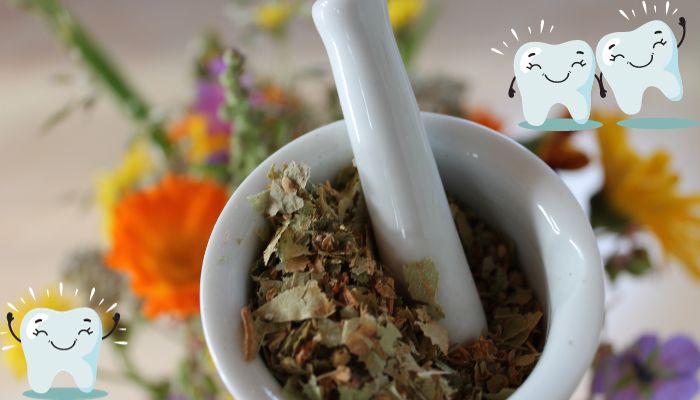
Teeth pain can occasionally be relieved with natural remedies like applying a cold wave compress or washing with water. However, a dentist might have to address the beginning issue, If the discomfort does not go down. A toothache is any moderate to severe discomfort in the jaws and teeth around them. It can be a sign that there’s a problem with your teeth or epoxies. When you witness dental pain, it’s critical to identify the underpinning cause of your discomfort. You can also decide how to treat any pain, swelling, or other symptoms to the topmost of your capability. More severe toothaches may need to be treated by a dentist, although moderate vexation can generally be resolved with a diurnal swab water wash and cold compress operation.
1. Rinse with Saltwater can reduce teeth pain-
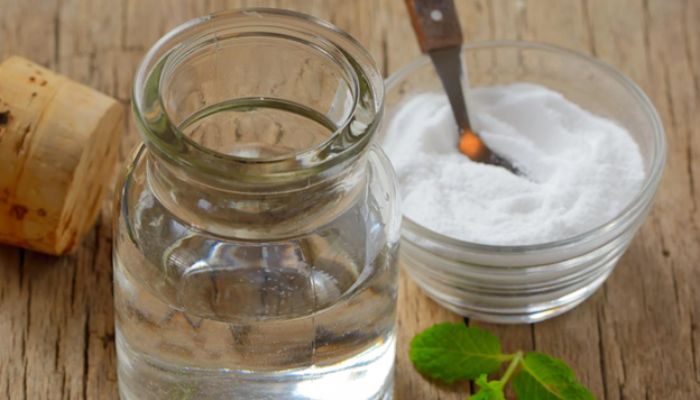
A saltwater rinse works well as a first-line treatment for many patients. As a natural disinfectant, salt water can assist in removing food particles and other debris that might be lodged in the spaces between your teeth. Utilizing salt water as a toothache remedy might also aid in reducing swelling and healing dental injuries.
- This method involves using half a teaspoon (tsp) of salt as a mouthwash in a glass of warm water.
2. Rinse with Hydrogen Peroxide-
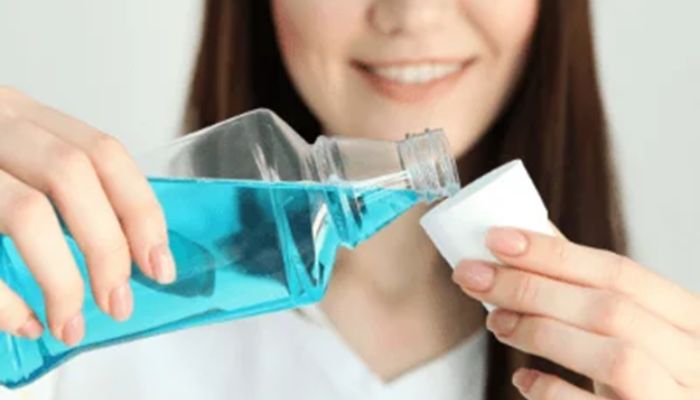
Rinsing is used as teeth pain medicine for long time. A hydrogen peroxide rinse could aid in the reduction of discomfort and inflammation. Hydrogen peroxide not only eliminates bacteria but also lessens plaque and treats bleeding gums. Reliable Source.
- Make sure the hydrogen peroxide is diluted correctly. Use equal parts water and three percent hydrogen peroxide as a mouthwash to achieve this. Avoid ingesting it.
3. Chilled Compress-
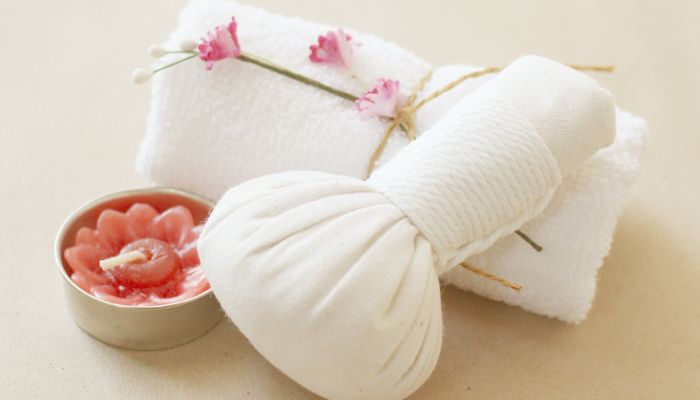
- If you have a toothache that has been brought on by trauma, applying a cold compress will help ease your pain. The blood vessels in that location constrict when you apply a cold compress. Pain is lessened as a result. Additionally, the cold can lessen any irritation and swelling. This method involves applying an ice pack wrapped in a towel to the afflicted area for 20 minutes at a time. This can be done again every few hours.
There are more ways such as with packets of peppermint tea, garlic, vanilla essence, cloves, guava leaf, wheatfield greenery, thyme, etc.
The following cures can be made at home, but you might need to order the components online or from your neighborhood health food store. Since your gums, teeth, and mouth are probably sensitive right now, it’s crucial to buy these components from a reliable supplier. You may experience less possible irritation as a result.
Best Teeth Pain Tablets-
In dentistry, pain control is pivotal and can enhance clinical results. It can be delicate, however. The sturdy tooth structure infrequently causes excruciating pain during treatment. rather, a seditious response that triggers pain-producing intercessors in the soft towel is constantly the primary source of pain. thus, determining whether or not treatment may complicate the seditious response and whether or not damage to the pulp and soft napkins has formerly been done is pivotal. In that case, the dentist has to choose which anesthetics — anodynes that do not beget unconsciousness or anesthesia — to give either before or after surgery. The dentist may recommend the following specifics to treat pain
- Naproxen
- Acetaminophen or Paracetamol
- Diclofenac
- Co-codamol
- Ibuprofen or Ketoprofen
1. NAPROXEN- Pain killer tablet for teeth pain
Another NSAID that lessens swelling and can help with pain operation to some extent is naproxen. It functions by lowering hormones that lead to inflammatory responses in the body. generally, croakers use naproxen to treat swelling brought on by gout, bursitis, ankylosing spondylitis, arthritis, tendinitis, or menstrual cramps. To a certain extent, it can also help with tooth pain. Note Do not take naproxen if you have ever endured an adverse response to aspirin or any other NSAID. also, since taking bigger pilules or longer than recommended increases the trouble of stroke or heart attack, you should avoid doing so.
Also read: BUY TEETH CLEANING PRODUCTS AT UP TO 80% OFF
2. Acetaminophen or Paracetamol -effective teeth pain medicine
This pain reliever is generally specified by croakers for headaches, backaches, muscular pangs, complications, and toothaches. These specifics stop whim-whams signals from reaching the brain, which prevents pain from being transmitted rather than dwindling inflammation. It’s constantly specified to people who are antipathetic to NSAIDs and are unfit to take ibuprofen or aspirin. However taking too numerous paracetamols might harm your liver, especially if you take them with other specifics.
3. Diclofenac-
Diclofenac is constantly specified by croakers to relieve mild to moderate pain. It’s a stronger NSAID than ibuprofen and also lowers chemicals in the body that produce pain and inflammation. It’s generally specified by croakers to palliate migraine headaches, menstrual cramps, and arthritis symptoms. Indigestion, diarrhea, headaches, somnolence, stuffy tips, and elevated blood pressure are exemplifications of common adverse goods. In addition to adding your chance of stomach or intestinal bleeding, diclofenac can also raise your threat of stroke or heart attack. Inform your croaker of any conditions you may have, similar to high blood pressure, heart complaints, asthma, liver or renal illness, or a history of stomach ulcers or bleeding.
4. Co-Codamol-
Croakers recommend this combination of paracetamol and codeine phosphate for evanescent pain relief. It functions also as paracetamol and comes in colorful strengths. While codeine phosphate mimics the action of endorphins produced in the brain and spinal cord to lessen pain, it also lowers the product of prostaglandins, which are the brain’s pain receptors. Co-codamol side goods that are constantly endured include constipation, nausea, puking, dizziness, and sleepiness. However, respiratory depression, asthma, If you have liver failure.
5. IBUPROFEN OR KETOPROFEN- Most used tablet for teeth pain.
This is frequently regarded as the stylish untoward drug for treating tooth pain. This is another NSAID that’s generally well permitted and only infrequently causes some people to have gastrointestinal torture. also, to treat more severe pain and to add an anti-inflammatory, ibuprofen is constantly used in addition to paracetamol. However, you should avoid using ibuprofen, If you have asthma. You should also precisely read the marker to look for any fresh warnings or contradictions.
Why does one get a toothache?
Tooth discomfort can arise for a variety of reasons. Some potential causes of toothaches are:
- dental abscess.
- broken teeth.
- a fractured dental work (crown, filling, or otherwise).
- Crushing or grinding teeth is called bruxism.
- gum illness.
WAYS TO AVOID DENTAL CAVITIES-
1. Reduce your intake of Acidic and Sugary Beverages-
The issue with drinking coffee that contains cavities-causing ingredients like sugar, syrups, and cream is that the sugars cause long-term damage to your salivary glands. To combat this, rinse your mouth with water in addition to other beverages to prevent saliva from becoming overly sweet and corroding your teeth. To keep those sugary liquids off your teeth and out of your saliva, you could also consider drinking coffee with a straw.
2. Establish the practice of Flossing–
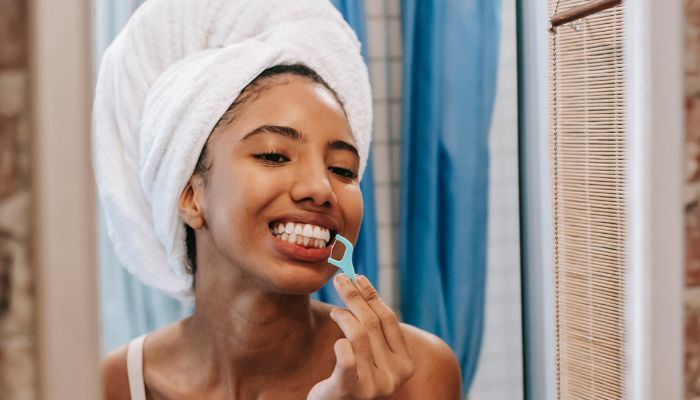
So, how does one develop the practice of flossing? Consider it a form of “multitasking,” which we all like doing. Try flossing while reading a book in bed or while watching TV. Just like with cleaning your teeth, you should ideally floss just after a meal or before going to bed. However, because you can floss while on the road, it’s more handy and easier. The secret is to start small and establish a pattern that you can stick to, just like you would with any other healthy habit.
3. Give up Cigarettes to avoid teeth pain-
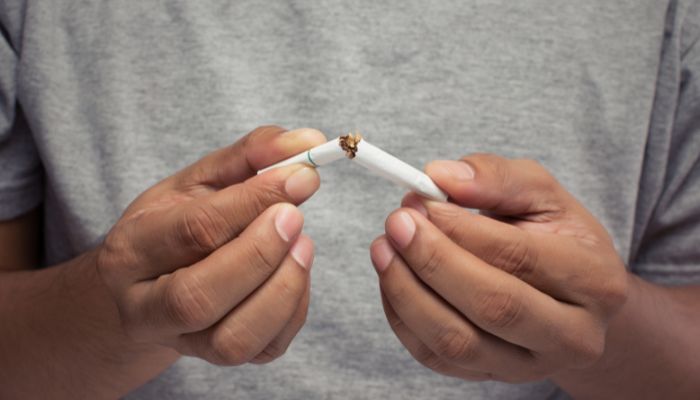
Best teeth pain medicine is to give up smoking. It’s generally recognized that using tobacco products and smoking can affect a wide range of health issues. Nearly every organ in the body is harmed by smoking, which also causes sickness and incapability. presently, over 16 million Americans suffer from a smoking-related illness.
4. Determine the Danger of Cavities-
Knowing your cavity risk level is the first step to taking charge of your oral health. The most effective method to find out this is with a thorough dental examination. You will be able to determine your current condition, any necessary treatments, and what dietary and dental hygiene adjustments may be beneficial with routine checkups and consultations with your dentist. Knowing your risk level allows you to improve your dental health in a more targeted and efficient manner.
5. Frequent Tooth Brushing-

Brushing your teeth regularly is the best way to avoid toothache. You’ve heard this advice since you were too small to ride the large rides, and it is the most clear. However, allow us to explain why it is so crucial for both your general and oral health.


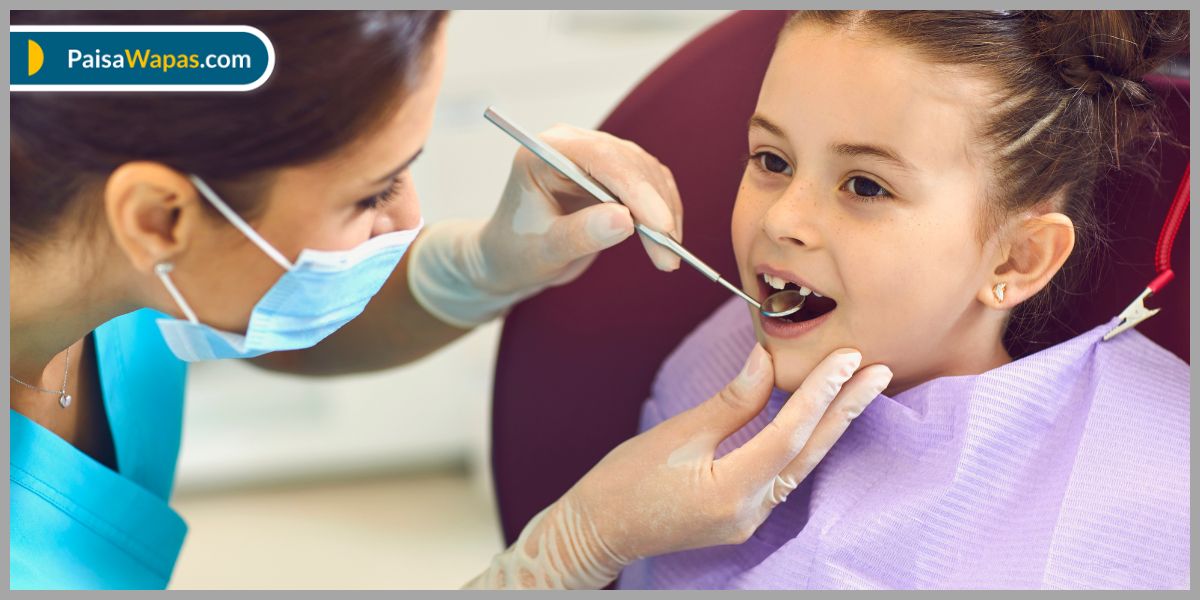




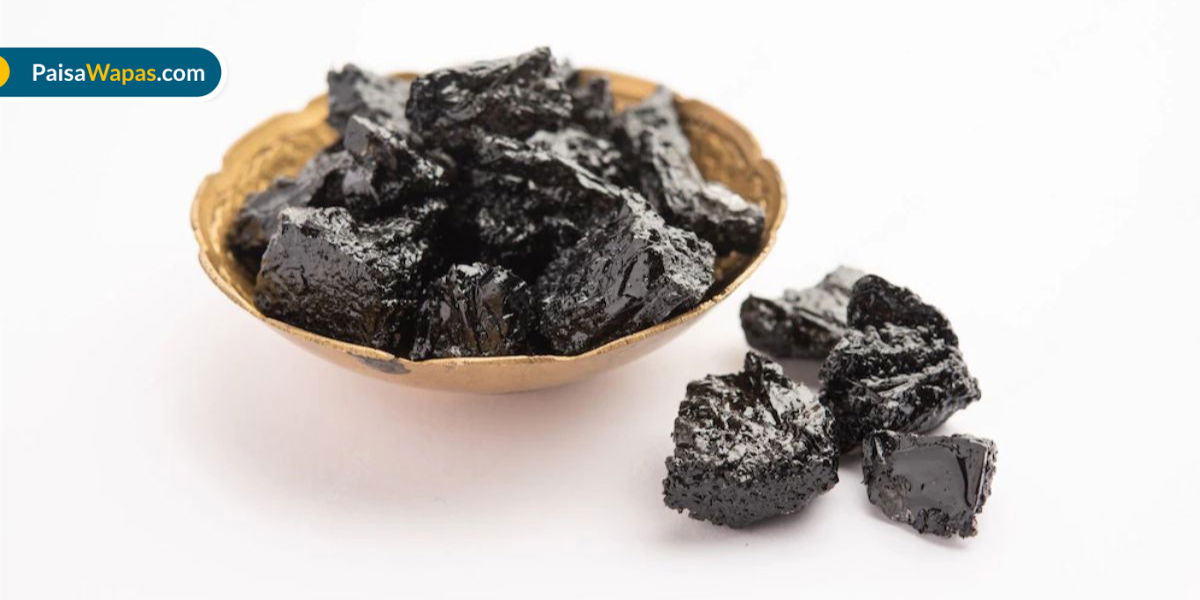

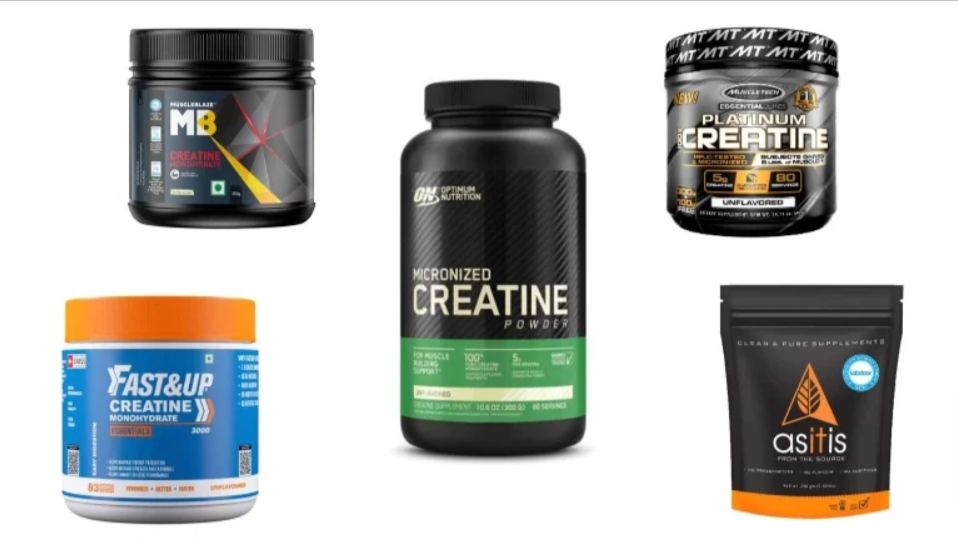


What types of dental issues commonly cause toothaches that require professional treatment?